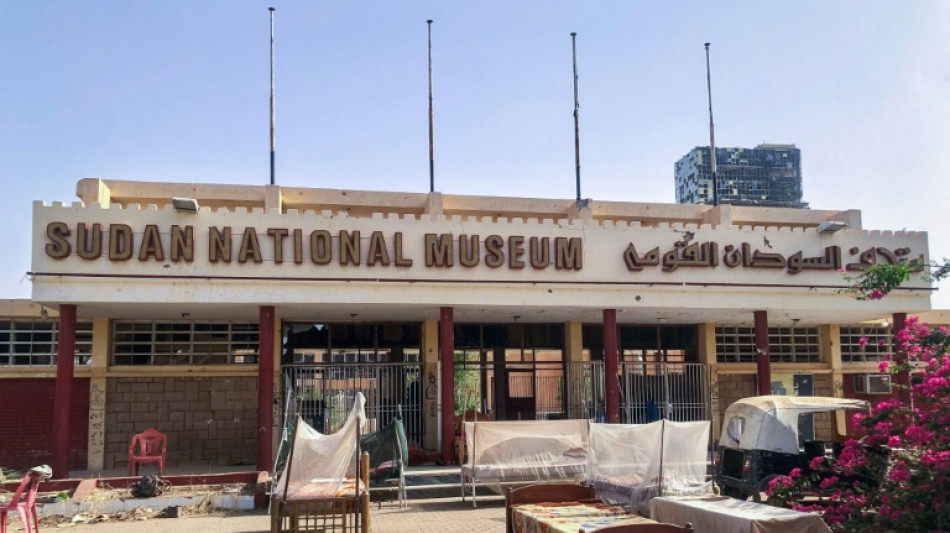
-
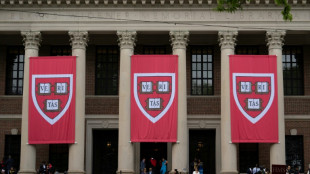 Judge overturns Trump funding cuts to Harvard: ruling
Judge overturns Trump funding cuts to Harvard: ruling
-
Record French fines for Google and Shein over cookies

-
 Former federal workers bring back climate portal killed by Trump
Former federal workers bring back climate portal killed by Trump
-
Auger-Aliassime outduels De Minaur to reach US Open semis

-
 NFL commissioner opens door for Swift Super Bowl performance
NFL commissioner opens door for Swift Super Bowl performance
-
US strike marks shift to military action against drug cartels

-
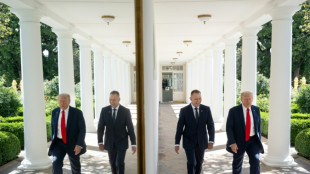 Trump offers more US troops to Poland's nationalist president
Trump offers more US troops to Poland's nationalist president
-
Florida to scrap all vaccine mandates, West Coast states push back

-
 First Bond game in a decade seeks licence to thrill
First Bond game in a decade seeks licence to thrill
-
Wildfire tears through California gold rush town
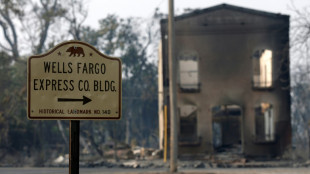
-
 'Downton Abbey' stars tread red carpet for finale
'Downton Abbey' stars tread red carpet for finale
-
Islamic State claims deadly attack on Pakistan rally
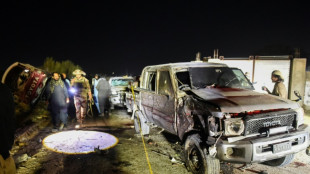
-
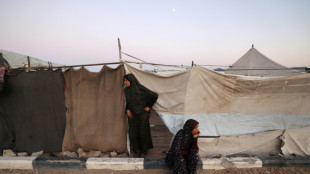 Israel says expecting one million Gazans to flee new offensive
Israel says expecting one million Gazans to flee new offensive
-
Kaouther Ben Hania: the director bringing Gaza into focus at Venice
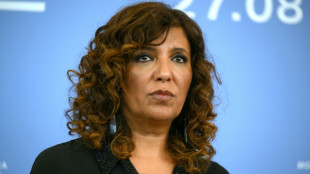
-
 New York's Met Opera unveils Saudi collaboration to boost finances
New York's Met Opera unveils Saudi collaboration to boost finances
-
'Ketamine Queen' pleads guilty over Matthew Perry death

-
 Florida to end 'slavery' of vaccine mandates
Florida to end 'slavery' of vaccine mandates
-
Clippers dodged NBA salary cap with phony job for Leonard - report

-
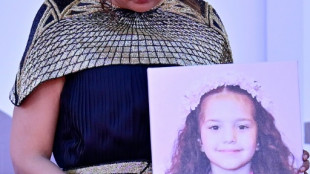 Gaza drama gets 23-minute ovation at Venice premiere
Gaza drama gets 23-minute ovation at Venice premiere
-
Nagelsmann warns Wirtz 'needs time' to shine at Liverpool

-
 Epstein victims compiling list of sexual abusers
Epstein victims compiling list of sexual abusers
-
Director Julian Schnabel hits out at boycott calls over Israel

-
 Bangladesh win T20 series against Netherlands 2-0 after no result
Bangladesh win T20 series against Netherlands 2-0 after no result
-
Trump offers more US troops in talks with Poland's nationalist president
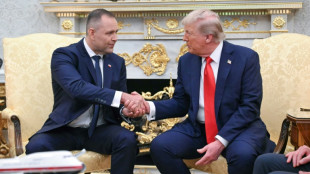
-
 US West Coast states announce new agency for vaccine guidelines
US West Coast states announce new agency for vaccine guidelines
-
Lost for 50 years, Nobel patents found in Swedish summer home
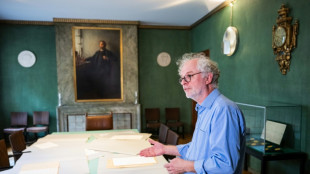
-
 Stocks bounce as global bond selloff eases
Stocks bounce as global bond selloff eases
-
Trump 'attacking US universities': ex-Harvard president

-
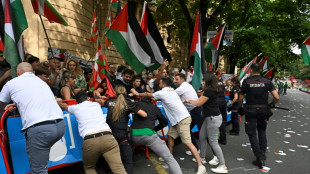 Pro-Palestinian protest forces Vuelta stage to be shortened
Pro-Palestinian protest forces Vuelta stage to be shortened
-
Putin vows not to back down in Ukraine
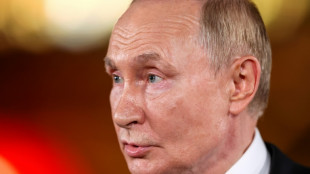
-
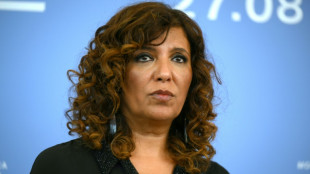 Docu-drama gives 'voice' to Gaza victims at Venice Festival
Docu-drama gives 'voice' to Gaza victims at Venice Festival
-
Bolsonaro lawyers tell Brazil court acquittal 'imperative'

-
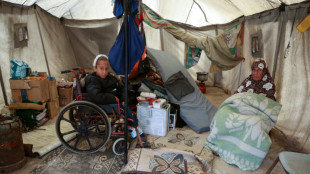 At least 21,000 children disabled in Gaza war: UN committee
At least 21,000 children disabled in Gaza war: UN committee
-
Trump welcomes nationalist Polish president for talks dominated by Ukraine

-
 Putin says not heard of Jude Law film portrait
Putin says not heard of Jude Law film portrait
-
'Block everything': France on alert ahead of nationwide protest
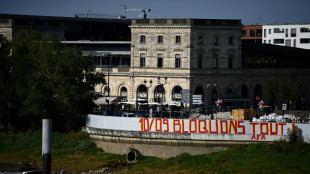
-
 Treat carbon storage like 'scarce resource': scientists
Treat carbon storage like 'scarce resource': scientists
-
Ryanair slashes winter seats in Spain over airport fees

-
 European fans take aim at hosting league matches overseas
European fans take aim at hosting league matches overseas
-
Impact of US judge's ruling on Google's search dominance

-
 Days after quake, Afghan survivors still await aid
Days after quake, Afghan survivors still await aid
-
Xi, Putin, Kim meeting 'direct challenge' to international system: EU top diplomat

-
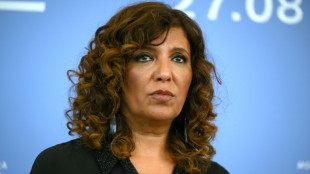 Harrowing docu-drama gives 'voice' to Gaza victims at Venice Festival
Harrowing docu-drama gives 'voice' to Gaza victims at Venice Festival
-
UK govt pledges to keep grip on spending ahead of budget

-
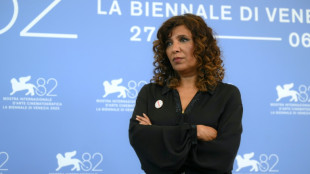 Director tells Venice that Gaza film gives 'voice' to victims
Director tells Venice that Gaza film gives 'voice' to victims
-
EU presents Mercosur deal for member states' approval
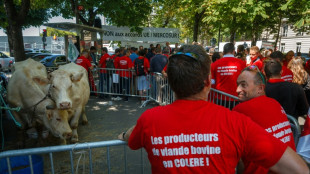
-
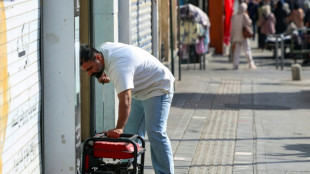 Iran's small businesses hit by rolling blackouts
Iran's small businesses hit by rolling blackouts
-
Scotland's Townsend extends contract until 2027 Rugby World Cup

-
 Homeless and fearful, Afghan quake survivors sleep in the open
Homeless and fearful, Afghan quake survivors sleep in the open
-
Espanyol fan who racially abused Williams sentenced to prison


How millennia of history vanished in Sudan's war
In the scorched courtyard of Sudan's National Museum in Khartoum, a towering black granite statue of Kush Pharaoh Taharqa now stands alone, surrounded by shards of broken glass and shattered stone.
Since the museum was looted in the early days of Sudan's war between the army and paramilitaries in April 2023, thousands of priceless antiquities, many dating back to the 3,000-year-old Kingdom of Kush, have vanished.
Officials believe that some have been smuggled across borders into Egypt, Chad and South Sudan, but there is no trace of the vast majority of the pieces.
"Only the large, heavy objects that couldn't be carried off were left behind," said Rawda Idris, a public prosecutor and member of Sudan's Committee for the Protection of Museums and Archeological Sites.
At its height, the museum housed over half a million artefacts spanning 7,000 years of African history that, according to former antiquities director Hatim al-Nour, "shaped the deep history of Sudanese identity".
Colossal statues of Kushite war deities now stand sentinel over the neglected grounds, beneath a ceiling bearing the blackened scars of shelling.
The rest of the museum's precious contents have disappeared, the vast majority seemingly without a trace.
- 'War crime' -
Central Khartoum, where the museum stands along with Sudan's main state institutions, was a battlefield from April 2023, when the paramilitary Rapid Support Forces (RSF) swept through town.
It was only after the army recaptured the capital in March that Sudan's antiquities officials returned for the first time to find their precious museum in ruins.
The worst blow, they say, was the loss of its famed "Gold Room", which had housed solid-gold royal jewellery, figurines and ceremonial objects.
"Everything in that room was stolen," said Ikhlas Abdel Latif, director of museums at the Sudanese antiquities authority.
According to her, the artefacts were transported in large trucks, through Khartoum's twin city of Omdurman, westwards to the RSF stronghold region of Darfur, before some emerged across the South Sudanese border.
The bulk of the stolen artefacts were from the Kingdom of Kush, a Nubian civilisation that once rivalled ancient Egypt in wealth, power and influence.
Its legacy -- preserved in artefacts sculpted from stone and bronze and adorned with gemstones -- has now been gutted, one of countless victims of Sudan's war between rival generals.
The conflict between army chief Abdel Fattah al-Burhan and his former deputy, RSF commander Mohamed Hamdan Daglo, has killed tens of thousands and created the world's largest hunger and displacement crises.
Army-aligned government officials accuse RSF fighters of looting the National Museum and other heritage sites, calling their destruction of artefacts a "war crime" -- an accusation the paramilitary group denies.
- Black market offers -
In September last year, UNESCO issued a global alert, urging museums, collectors and auction houses to "refrain from acquiring or taking part in the import, export or transfer of ownership of cultural property from Sudan".
An official at Sudan's antiquities authority told AFP that Sudan is working with neighbouring countries to track stolen items.
Interpol also confirmed to AFP it is involved in efforts to locate the missing artefacts, but declined to provide further details.
Last spring, "a group of foreigners were arrested" in Sudan's northern River Nile state with antiquities in their possession, said Idris, the public prosecutor.
Two sources at the antiquities authority said another group had communicated with the Sudanese government from Egypt, offering to return looted antiquities in exchange for money. It remains unclear how the government responded to the offer.
Kushite funerary statues are particularly sought after on the black market because they are "beautiful, small and portable", Abdel Latif says.
But specialists have so far been unable to trace them or the contents of the Gold Room anywhere.
According to Abdel Latif, sales are mostly happening in tightknit smuggling circles behind closed doors.
- $110 million and counting -
The National Museum in Khartoum is by no means the only cultural casualty of the Sudan war.
The scale of losses wrought upon it "can't make us forget the destruction of all the other museums, no less important" as repositories of Sudanese heritage, Nour, the former antiquities director, told AFP.
More than 20 museums across Sudan have been looted or destroyed, according to officials, who estimate the total value of the losses to be around $110 million so far.
In Omdurman, the Khalifa House Museum stands battered and bruised, its walls pocked with bullet holes and the jagged lesions of artillery fire.
The seat of power in 18th-century Sudan, the building now houses broken glass and splintered relics, its collections smashed to bits.
In Darfur, the besieged city of El-Fasher's Ali Dinar Museum, the largest in the western region, has reportedly been destroyed by fighting.
In South Darfur state capital Nyala, a local source said the city's museum has become impossible to access.
"The area is now completely destroyed," said the source. "Only RSF fighters can move there."
Abdel Latif said the museum, renovated after years of closure, "has now become a military base".
U.Maertens--VB
